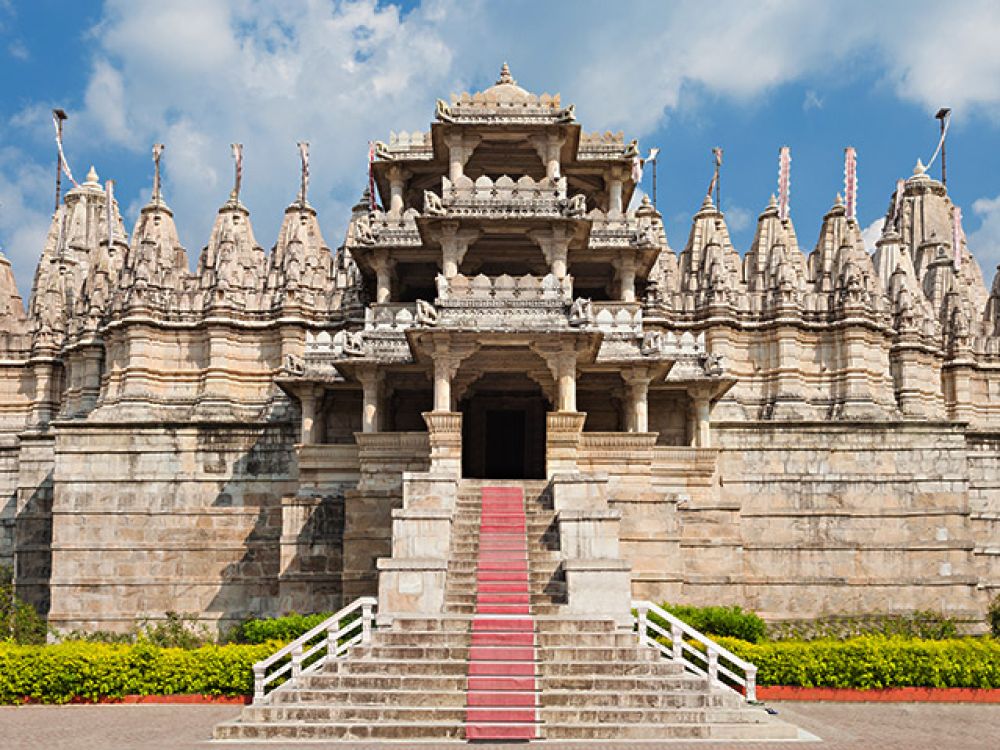

The sacred town of Palitana in Gujarat, India, is known for its significant place in Jain tradition and history. It's a complex of Jain temples located primarily on Shatrunjaya hills, of which the Chaumukha Temple is a distinguished and revered site. The town itself is considered to be the most sacred pilgrimage spot for the followers of Jainism, with the belief that every Jain should visit Palitana at least once in their lifetime to achieve Nirvana or salvation.
Historically, the entire Shatrunjaya hill region where Palitana's temples stand, including the Chaumukha Temple, has been recognized as a place of worship since the 5th century. However, most of the temples, as seen today, were built in the 16th century after substantial reconstruction due to repeated devastations by invasions over the centuries.
The Chaumukha Temple, which translates to "four-faced temple," is dedicated to Lord Adinatha, the first of the 24 Tirthankaras in Jainism. The temple's design and architecture represent a cosmic diagram and reflect the Jain philosophy of the interconnectedness of the earthly and spiritual realms.
One of the characteristic features of the Chaumukha Temple is its intricate and detailed artistic work. The temple, renowned for its remarkable craftsmanship, boasts elaborate stone carvings, exquisite marble work, and distinctive spires that dominate the landscape. The temple is designed as a chaumukha, meaning it has four faces, and opens out to four different directions, symbolizing the Tirthankara's quest to spread Jainism to all the cardinal points.
In terms of tourism, Palitana has seen steady growth due to its religious importance and historical heritage. Over the years, the local government and various non-profit organizations have focused on sustainable tourism, ensuring minimal ecological impact on the hills and temples.
Recently, there has been a push for eco-friendly measures, such as implementing strict waste disposal systems and promoting the use of non-polluting vehicles to access the temple site. For those not able to climb the approximately 3500 steps to the temple complex, there are doli or palkhi services (palanquins) carried by porters that provide an alternative mode of ascent.
Visitors to the Chaumukha Temple can expect an enriching cultural and spiritual experience. Palitana's temples are not just about religion; they serve as an embodiment of ancient architecture and artistry. The journey to the temple top involves a significant climb, which symbolizes the physical and spiritual effort necessary for liberation according to Jain beliefs.
The best time to visit the Chaumukha Temple is between the months of October and March when the weather is cooler, making the climb more comfortable. The temples remain closed for visitors during the monsoon season due to the risks posed by heavy rains and slippery pathways.
As a destination, Palitana and the Chaumukha Temple are not just a pilgrimage for Jains but a beacon for tourists seeking insight into sacred architecture and the enduring spirit of devotion. The place continues to grow in prominence as both a religious center and a testament to India’s historical and cultural richness